Residents of informal settlements confront challenges head-on
Inadequate housing risks people’s health, safety and prospects for earning a living. People living in informal settlements of Bangladesh, Brazil and Kenya are working to overcome obstacles so they can improve their homes. With coordinated efforts at all levels, we can advance policies that address key barriers to adequate housing, including empowered participation of community members, reliable and basic services, climate resilient homes and secure land rights.
For people living in informal settlements, a multitude of obstacles interlock to keep them from thriving.
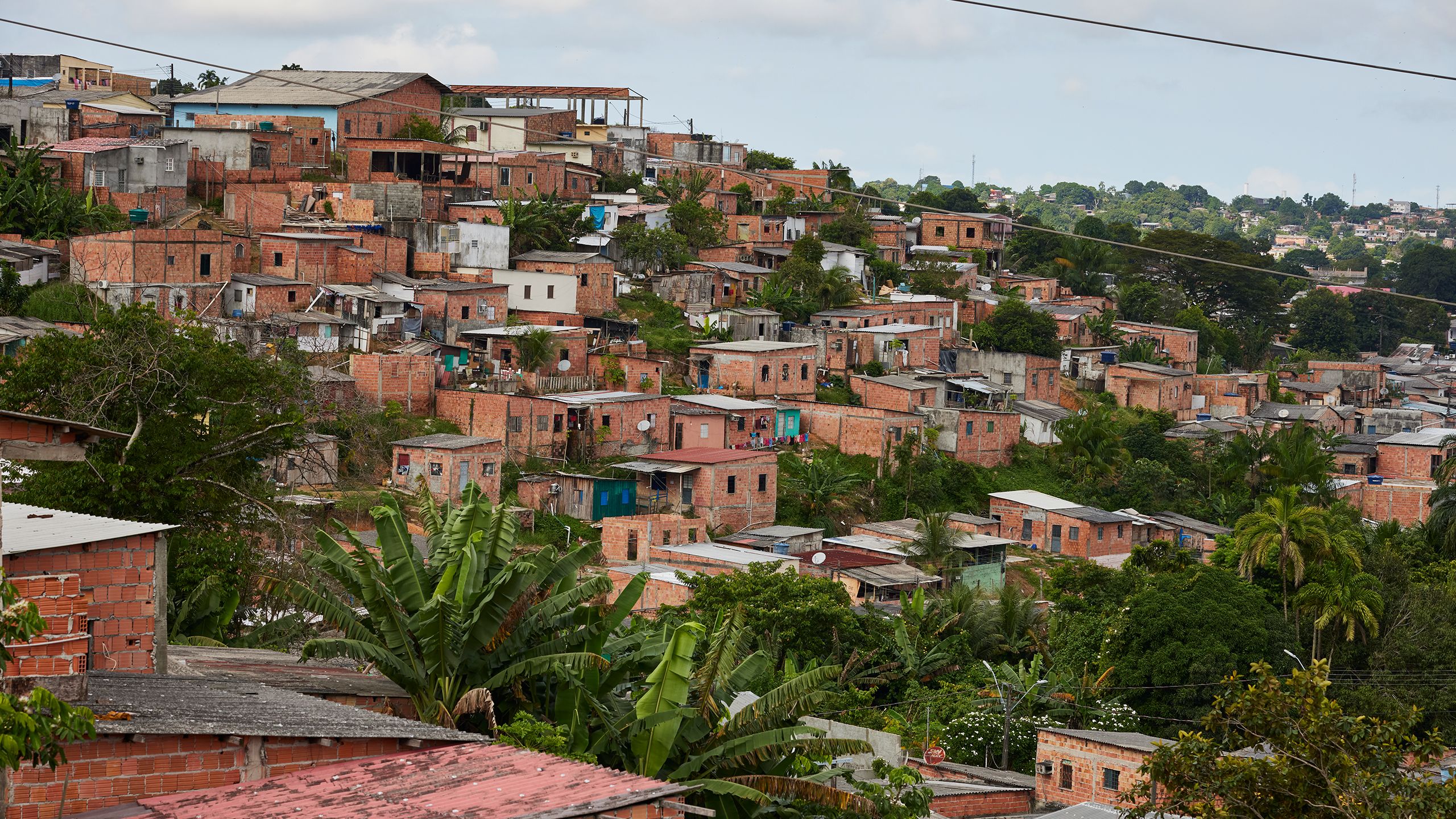
They may struggle with missing or inadequate basic services, poor infrastructure, and a lack of critical facilities like schools or medical centers.
Hazardous locations, poor building materials and insufficient space to accommodate thousands of families all contribute to a constant risk of losing housing to disasters like fires or floods. Many also live in fear of eviction due to lack of legal rights to the land their housing is built on.
Many informal settlements are overcrowded, without enough space for families to live in safe and healthy conditions, and open spaces such as roads, sidewalks, parks or plazas are scarce.
Each day, an estimated 2,000 people move to Dhaka, many displaced by rising sea levels and tropical cyclones, and often these new arrivals land in informal settlements. More than 1.8 million people in Bangladesh live in informal settlements, according to the country’s 2022 census.
Without adequate infrastructure, informal settlements are left vulnerable to hazardous weather. For families living in Dhaka’s Duaripara community, insufficient stormwater drainage means that walkways – and the homes that line them – flood during heavy rain. In addition to damaging paths and buildings, standing water can contain dangerous chemicals and lead to the spread of infectious diseases.
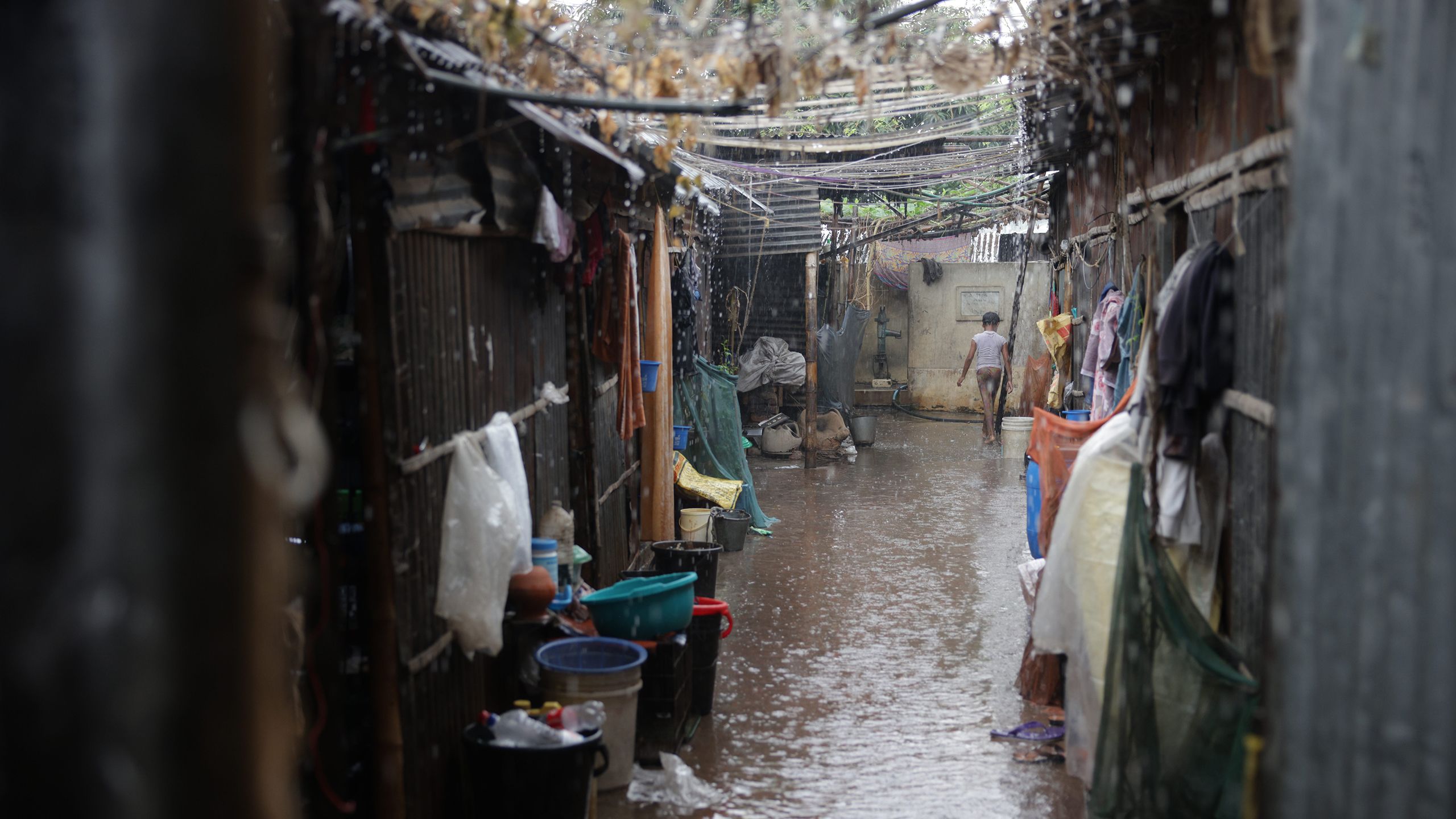
Poor infrastructure in informal settlements can create interlocking problems. The Nova Vida community in Manaus, Brazil, lacks stormwater and waste management, so their unpaved roads are eroded by rain and clogged with loose trash and debris, making travel in and out of the neighborhood difficult and dangerous.
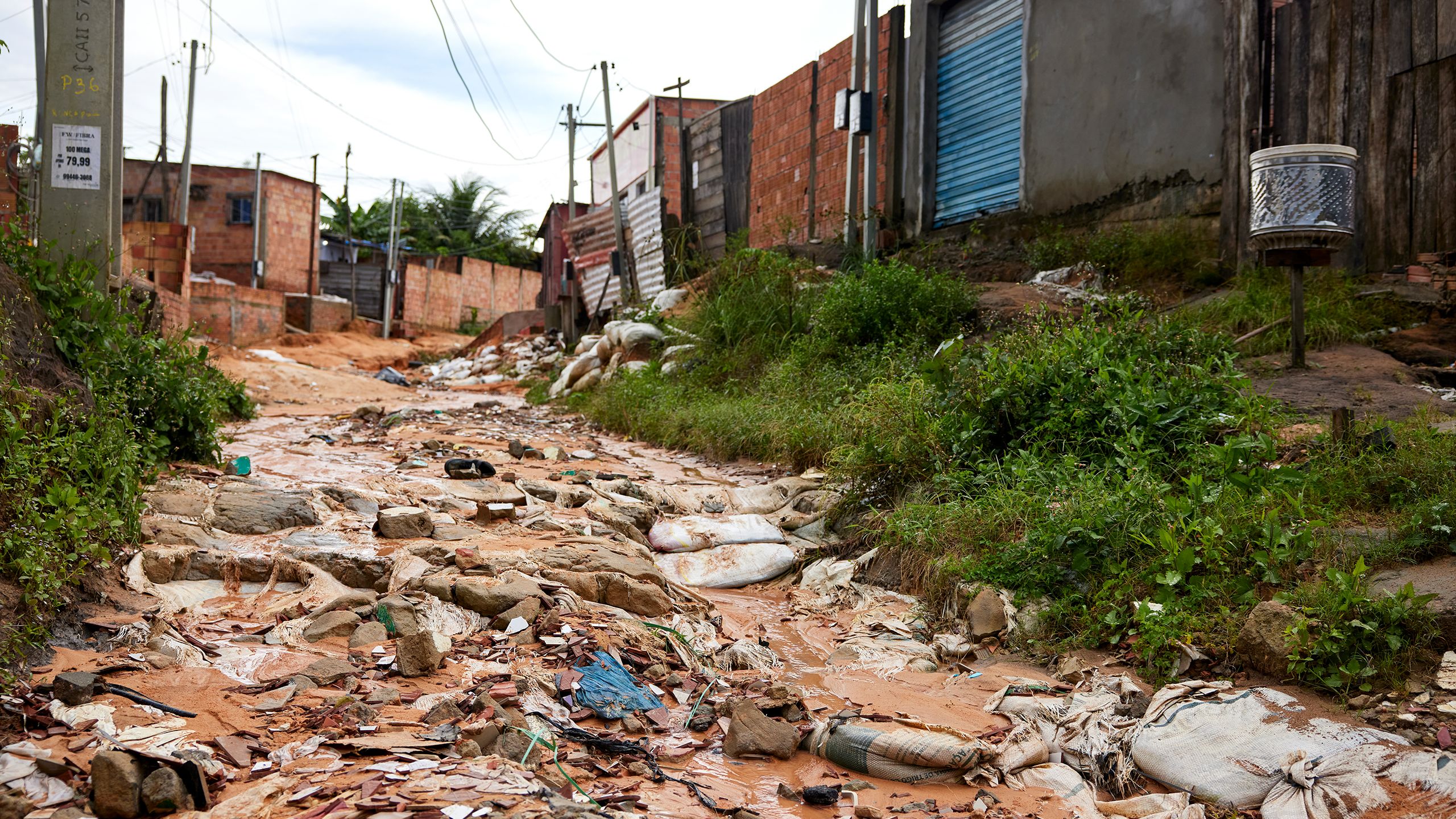
Inadequate sewage disposal creates health hazards. In the Beguntila informal settlement in Dhaka, flood runoff combines with sewage just steps from families’ homes. Poor sanitation heightens the risk of contracting life-threatening diarrheal diseases, typhoid and intestinal infections.
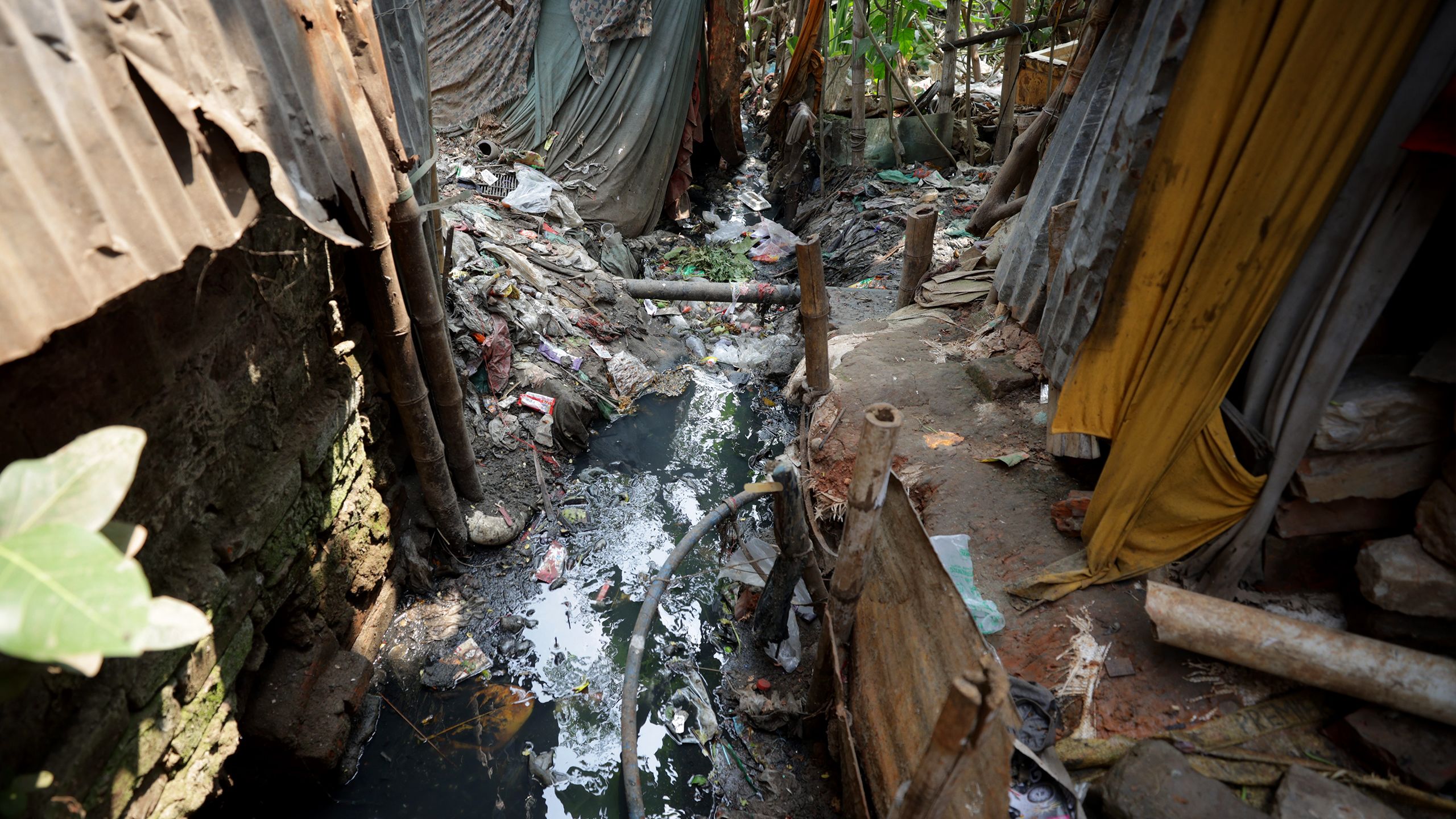
Many homes in informal settlements are built and repaired with inexpensive or salvaged materials – including repurposed items like poles or plastic sheeting not meant for construction.
Untreated plywood or rusting sheet metal can deteriorate quickly, leaving occupants exposed to the elements.
These improvised structures aren’t up to the task of keeping their occupants safe, comfortable and dry, and are often in danger of collapse during storms and natural disasters.
Inside, these homes often lack critical basic services. The residents of the Parque das Tribos community in Brazil did not have easy access to clean water for cooking, washing and hygiene for many years.
Cooking facilities without adequate ventilation can contribute to breathing problems and increase the risk of accidental fires. In Duaripara, fires often start from indoor stoves and cooking fires as well as mosquito coils or precarious electrical or gas connections. Because of narrow streets and lack of firefighting systems’ capacity to respond, blazes spread rapidly through houses that are built close together.
Finding employment can be a challenge, and inadequate housing often doesn’t support people working in their homes. Electricity can be unreliable or expensive when it’s available at all. In Beguntila, Mim relies on the dim light from an open door to make clothing on her loom.
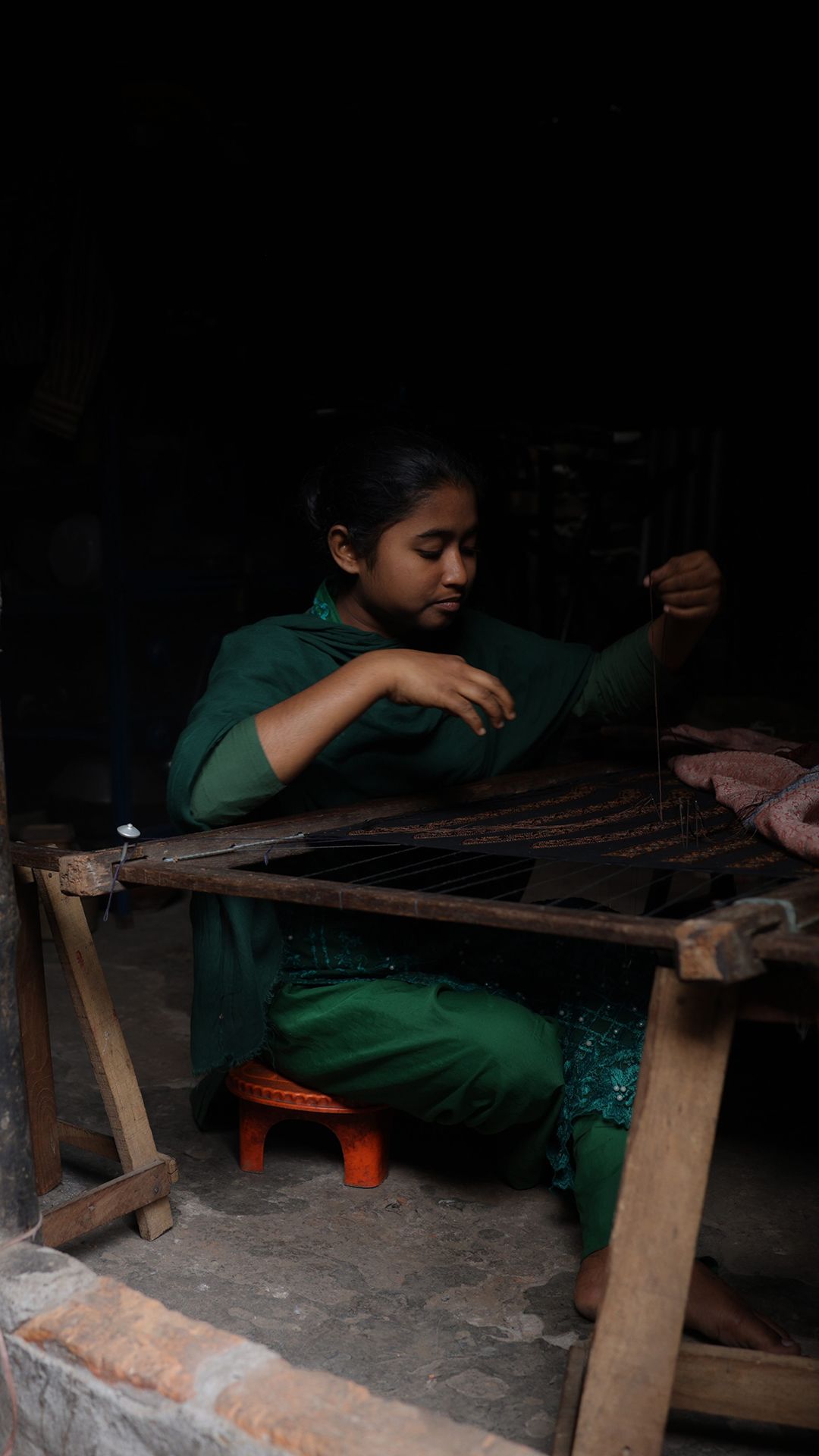
Inadequate housing also impacts a family’s educational opportunities. Many informal settlements are not located near schools and lack the shared space and resources to provide school services in the community. Children may lose school time to chores like hauling clean water, and a home without adequate space or protection from weather can make it hard to study.
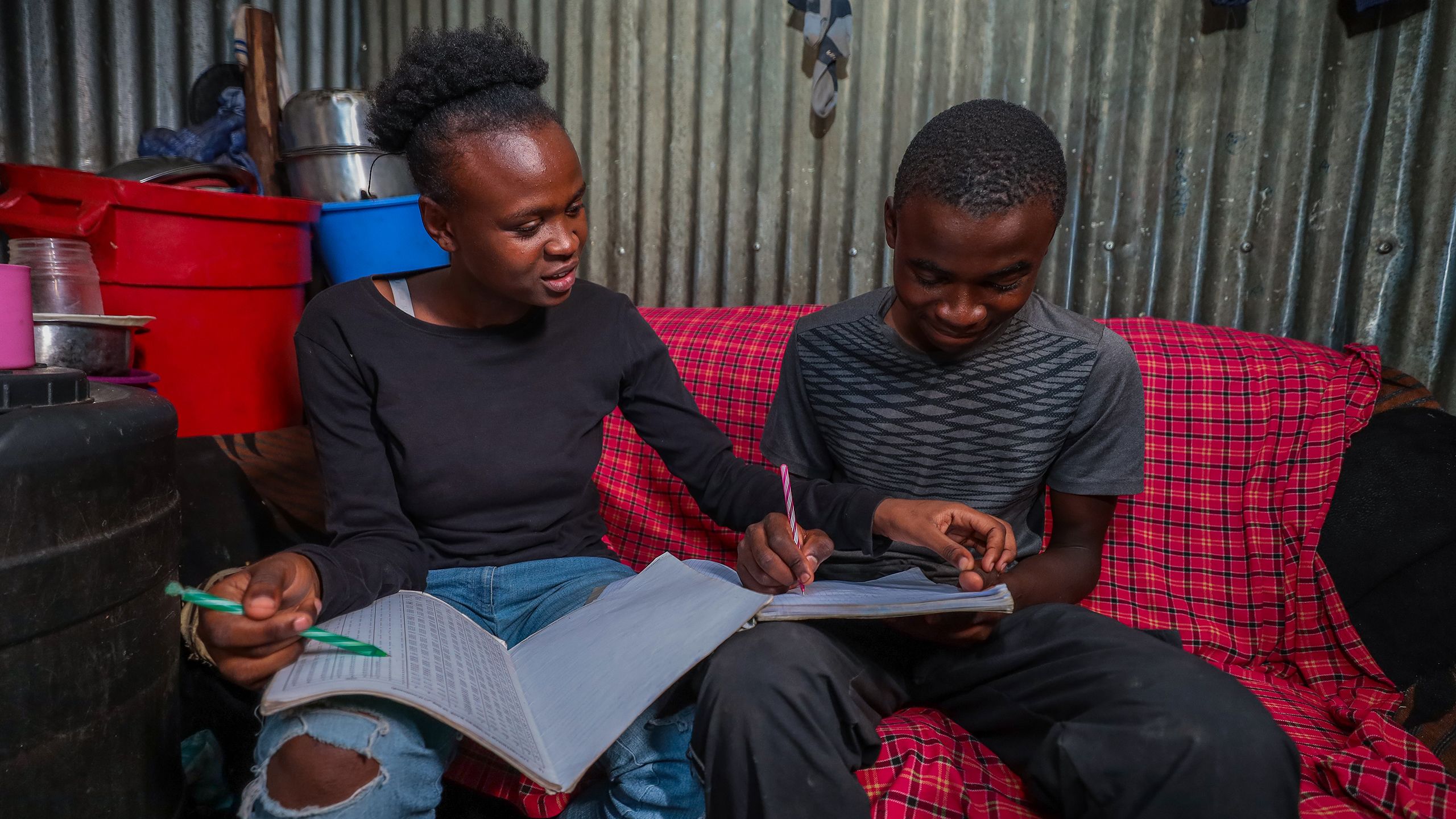
Insecure land tenure can upend the lives that residents of informal settlements have worked to build. Vilma witnessed mass evictions destroy an informal settlement, and her family was left without housing when her houseboat sank. After securing an apartment in her current building, Ocupação Alcir Matos in Manaus, Brazil, she and other community leaders are now fighting eviction orders for 18 families.
Indigenous peoples and other marginalized groups can face even more obstacles to tenure security. Nova Vida, another informal settlement in Brazil, has 2000 families from 14 different indigenous groups. They lack legal rights to the land where they’ve built their homes, even though part of it is an indigenous burial ground. The community, led mainly by women like Sol, has united to fight against threats of eviction and to ensure legal claims to their land as well as access to clean water, sanitation and paved streets.
Despite facing many challenges, residents of informal settlements are working together to create positive change and transform their neighborhoods.
Beguntila, a four-acre informal settlement created in 1999, is now home to 700 families. The settlement’s early years were particularly difficult. Raje, a longtime resident, recalls, “The mud was knee-high. The (rain)waters came up to the waist.” Poor drainage remains a problem, and overcrowding is increasing.
Now Raje and other community leaders in Beguntila hold regular community meetings to discuss issues in the community and gather input. They have secured access to clean water and connections to the government’s electricity grid and are working on improvements to stormwater drainage.
Since 2015, Sahana and Sumi have led the community water, sanitation and hygiene committee in Duaripara. They and other community members developed their skills through training courses in masonry, carpentry, proper hygiene and waste management.
A few years ago, they successfully obtained approval from local officials to repair roads, construct new toilets and install a drainage system in partnership with nongovernmental organizations. The committee has also helped persuade residents to use hygienic toilets instead of “hanging toilets” — whereby waste falls untreated into the water below — and works to identify new issues and priorities by meeting regularly with community members.
Robert’s work hosting a public radio show for the Mukuru settlement in Nairobi plays a critical role in local advocacy efforts. Trained as a community mobilizer, he regularly brings in other residents for conversations about ongoing improvements, gathers broad public input from calls and messages, and makes sure that the residents hear accurate news about work that affects their neighborhood.
Lutana, a leader of the Kokama people and founder of the Parque das Tribos community near Manaus, Brazil, has mediated between residents and government officials to get limited access to water, electricity and sanitation as well as facilities for health and education. Now she is working to build on these successes by securing legal rights to their land, so that she and 900 other families can live free from fear of eviction.
Community leaders are already doing the work, and their leadership is essential to ensure community-led transformation of informal settlements. Governments must listen and contribute to the development processes already underway by communities. The right policies, systems and partnerships can turn remaining needs into solutions.
Together, with partners, governments and communities, we can create lasting change so that people living in informal settlements have safe and secure homes.